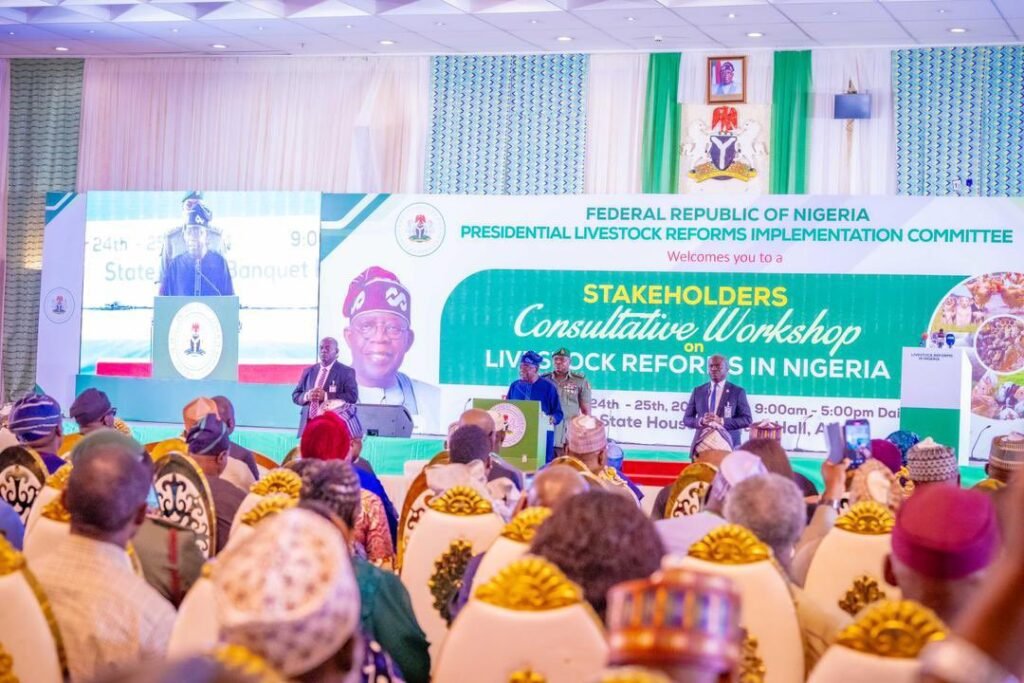President Bola Tinubu has revealed that Nigeria spends about $1.5 billion annually on imports of milk and dairy products, stressing the need for urgent reforms in the livestock sector.
The President said this at a two-day consultative workshop on livestock reform in Abuja.
Mr. Tinubu expressed concern over the country’s dependence on dairy imports and the critical state of local production.
“The long-term neglect of the livestock sector has weighed heavily on the country’s import bill, with milk and dairy products accounting for $1.2 billion to $1.5 billion,” he said.
The President expressed concern about the nutritional needs of Nigerian children and questioned why the country is unable to provide basic nutrition in schools. “Can a country of over 200 million people not be able to give a pint of milk a day to children in classrooms? That’s not right,” he said, adding that there is an urgent need to improve local production capacity. I emphasized one thing.
production level is low
The President pointed out that current levels of animal-based food production are alarmingly low. Nigeria only produces 700 million liters of milk annually, which is insufficient to meet the demand. “Our annual per capita consumption of 8.7 liters of milk, 9 kg of meat and 3.5 kg of eggs, or 45 eggs, is surprisingly low compared to the world average,” he said.
He further emphasized the need for improvement, saying: “What is more worrying to me is the average milk yield by breeds of cattle managed by pastoralists. Compared to the world average of 6.6 liters per day It’s only 0.5 to 1.5 liters.” day. We can do better! ”
Livestock reform
In his address, President Tinubu commended the Presidential Livestock Reform Implementation Committee, co-chaired by Prof. Attahiru Jega and Prof. Muhamed Yahaya Kuta, for its dedication to transforming the livestock sector.
He expressed a clear vision. “Our common mission is clear: We aim to transform livestock farming from its current subsistence model into a thriving, commercialized industry.”
He further added that Nigeria has significant resources including 563 million chickens, 58 million cattle, 124 million goats, 60 million sheep and 16 million pigs. He emphasized that Nigeria is one of the leading livestock producing countries in West Africa.
He called for a united effort, saying: We can bring prosperity to people. We can feed our children. We can get blessings from grass. We can contribute significantly to gross domestic product (GDP) and provide decent jobs. ”
What you need to know
Nairametrics earlier reported that President Tinubu has created the Ministry of Livestock Development as part of measures to quell the farmers-herders crisis raging in various parts of the country.
These conflicts contribute to significant losses of life and livelihoods, weaken food security, and the proliferation of small arms and light weapons, displacing large populations and diverting resources for development.
Drought and desertification in the north are pushing pastoralists further south in search of grazing land, leading to competition for resources and conflicts with settled farmers.
The Presidential Commission on Livestock Reform Implementation has proposed that a combination of ranching and open grazing could be the most practical solution to Nigeria’s farmer-herder crisis.
Follow us to get the latest news and market information.

